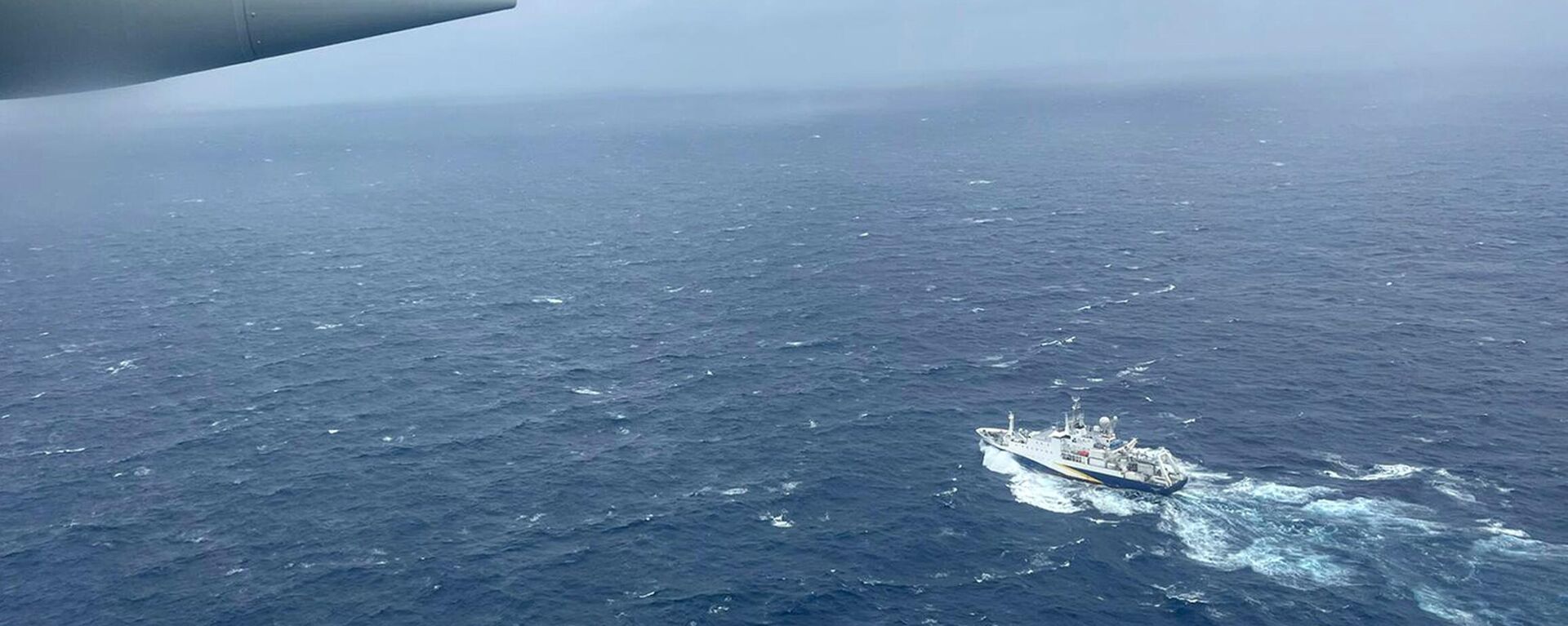‘Lawyer Up’: Jurisdiction Debates Will Complicate Lawsuits Expected Over Titan Implosion

© AFP 2023 / INDRANIL MUKHERJEE
Subscribe
Following the catastrophic implosion of a tourist submersible near the wreck of the RMS Titanic last week, experts say lawsuits are almost guaranteed - if only lawyers can figure out which jurisdiction to file the suits in.
The lawsuits are likely to come from one of two places: the families of the four passengers who died on board the submersible Titan when it imploded on June 18, or from the US or Canadian governments, whose maritime authorities are investigating the case.
The US Coast Guard (USCG) has opened a probe into the cause of the Titan’s implosion that will include an examination of “accountability aspects,” spokesperson Capt. Jason Neubauer told reporters on Sunday.
The probe may result in “recommendations to the proper authorities to pursue civil or criminal sanctions, as necessary,” Neubauer added.
Canada’s Transportation Safety Board has also launched its own inquiry, as the US-based company OceanGate ran its fateful mission out of St. John’s, Newfoundland, the closest port city.
However, the issue is greatly complicated by the fact that the accident happened in international waters about 370 miles south of Cape Race, the southernmost point on Newfoundland. While that happens to be the location of the wreck of the RMS Titanic, critics also say it was no coincidence that OceanGate founder Stockton Rush carried out such missions beyond the jurisdiction of regulatory authorities, whose inspections he scorned.
“If I was representing anybody that has anything to do with this thing, and they were US citizens or based in the US, I would be jumping up and down saying, ‘You need to lawyer-up immediately and get a real good analysis of what the potential liability could be,’” George Chalos, a maritime defense lawyer, told US Media.
“A criminal prosecution is viable – that’s an easy answer,” he said. “The question is where?”
Will Kohnen, chair of the Manned Underwater Vessels committee of the Marine Technology Society, a professional organization based in Washington, DC, told US media that "The next step, it's not a technical issue - It's a political one."
The case is also bogglingly international in scope: OceanGate is based in Everett, Washington, but the company and the submersible are registered in the Bahamas. The ship that deployed the submersible, the Polar Prince, is Canadian and operated out of Canadian port. Rush, OceanGate’s CEO, was American, but the passengers were from Pakistan, France, and the United Kingdom.
However, each of those passengers signed a safety waiver as part of the contract for the trip - waivers US courts are likely to uphold, maritime law experts said.
In addition, Rush was on board the Titan when it was crushed by the deep sea’s incredible water pressure.
Legal experts have told US media that the US Department of Justice could also sue under the Seaman’s Manslaughter Statute, a 19th-century law used to hold criminally responsible the captain or officers of a ship, as well as owners, inspectors, and company managers.
Whether the law is able to be applied or not, changes to regulations that allowed the accident to occur are also likely.
At present, regulations for the submersible industry don’t require submersibles for personal use to be officially certified, and they can vary between countries. The International Maritime Organization, a United Nations agency that regulates shipping, could potentially step in and apply its regulatory powers to deep sea exploration, but only if a member country’s delegation introduces such a measure.
Even before the accident, OceanGate was already facing down lawsuits deriving from its business practices. On Monday, a Florida couple announced they would drop their suit against Rush since "honor, respect and dignity" are more important to humanity than money. The suit sought repayment of $210,000 for an expedition on board the Titan - then called the Cyclops 2 - that was slated to occur in June 2018, but was repeatedly delayed.
According to local news reports, OceanGate refused to repay a $20,000 down payment, later presenting the family with a new contract requiring them to go on the delayed trip before they could be repaid. The company also reportedly failed to place the money in a separate escrow account, as required.


